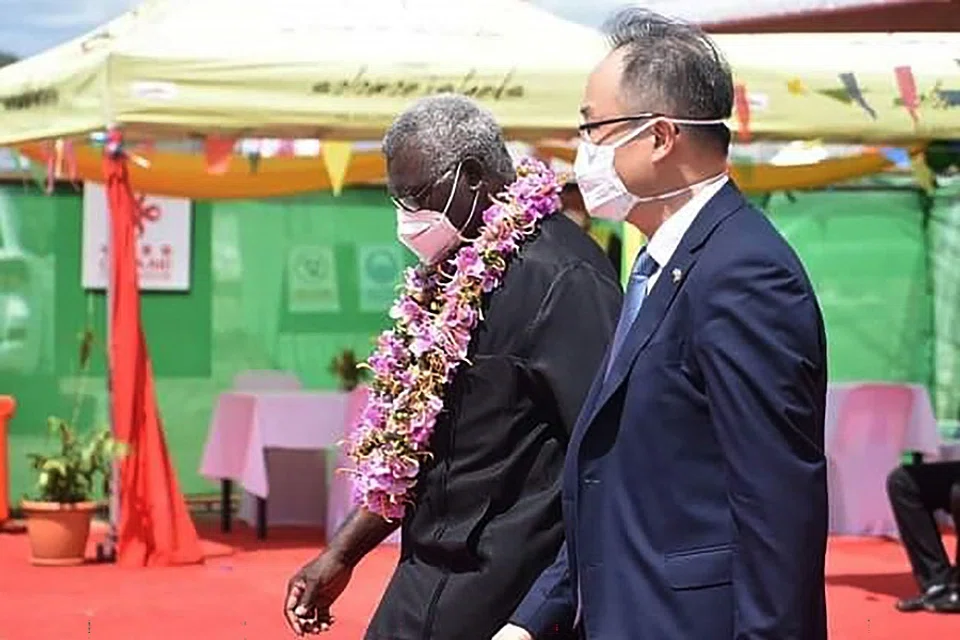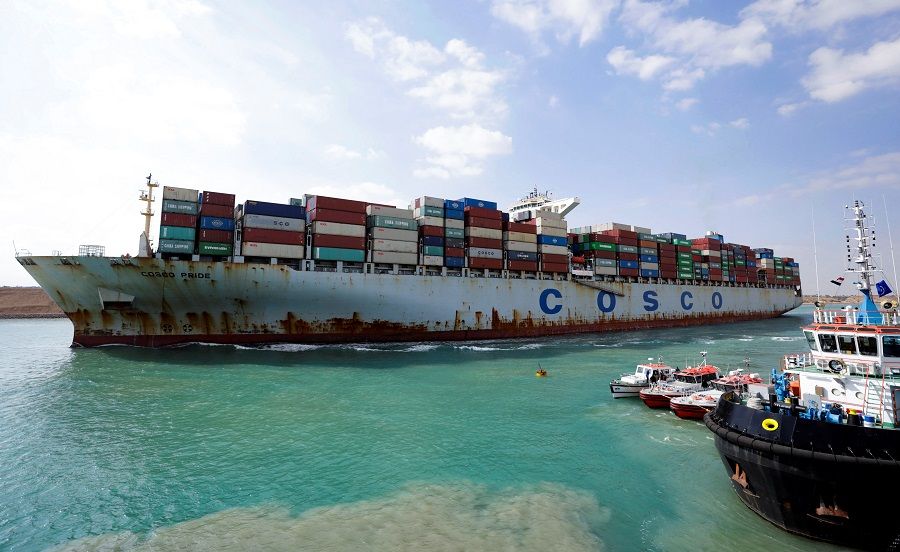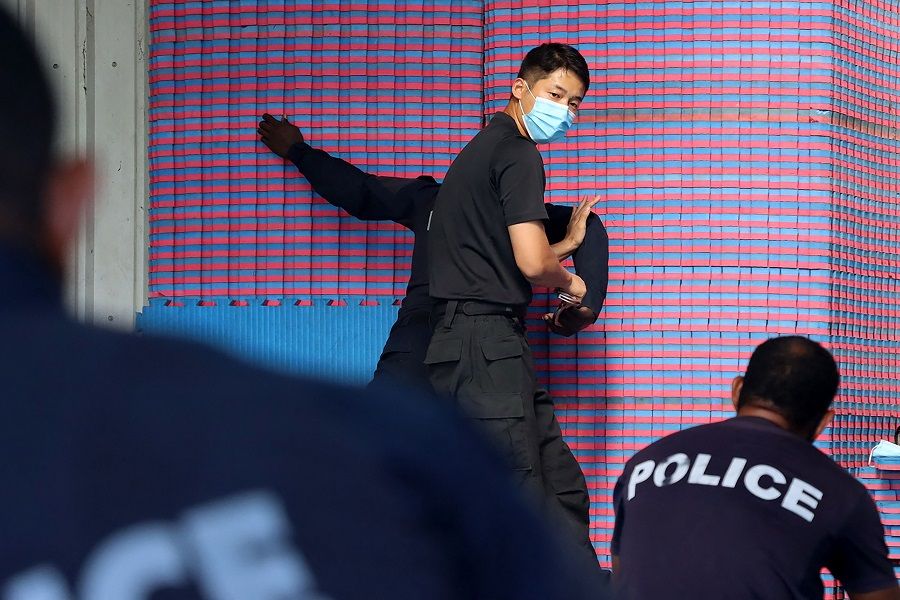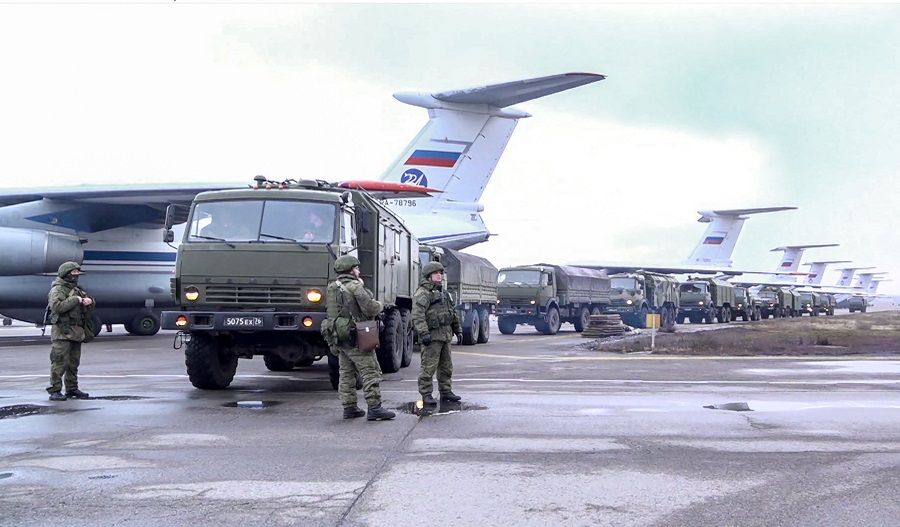Solomon Islands: Will China pick up the gun to defend its interests in the developing world?

In recent weeks, there have been several media reports claiming that China is planning to open a naval base in the Solomon islands. Australian media citing a "leaked" draft security pact between China and the Solomon islands (which was later signed in mid-April) said China could open a naval base in the Solomon Islands.
The Australian government criticised the agreement and warned of consequences of a Chinese naval base sited less than 2,000 kilometres from Australia. However, despite all the media frenzy and statements of alarm from senior Australian and American officials, the reality is far less threatening. At least for now.
For decades China has denounced the establishment of overseas military bases by foreign powers as imperialistic. At the same time, in the past decade, Chinese scholars have openly debated the establishment of overseas military bases and some have concluded that China's growing global interest will make it unavoidable.
Today there is only one confirmed Chinese overseas base - a naval base in Djibouti in the Horn of Africa. The base was established in 2017 mainly to support Chinese naval forces taking part in international efforts against Somali pirates.
...the Chinese naval base in Djibouti is surrounded by bases of nations who are at the very least suspicious of China. It is preposterous to think that the PLAN would conduct operations in such a hostile environment.
If other nations have overseas bases, why not China?
China is not the only country that has a military base in Djibouti - the US, India, Japan, France and several European nations also do. The presence of so many foreign bases in Djibouti made Beijing less concerned about claims that it has hegemonic ambitions in the region. If so many other nations have bases in the region, why not China?
The People's Liberation Army-Navy (PLAN) was deployed as part of an international effort to fight a common malady - piracy. As such, the opening of China's first overseas base was done openly and without secrecy.
While no one can deny the strategic importance of Djibouti, being right at the entrance to the Red Sea and the Suez Canal, China's main motivation, like that of so many other nations, was to keep vital sea lanes of communication (SLOC) open. The Suez Canal and the Red Sea are vital for China's lucrative commerce with Europe, Africa and the Middle East. Any disruption would cause billions in lost trade.

Some Western observers have claimed that China's other intention of establishing an overseas naval base was in case of conflict with other powers such as India and the US. This is rather unlikely as the Chinese naval base in Djibouti is surrounded by bases of nations who are at the very least suspicious of China. It is preposterous to think that the PLAN would conduct operations in such a hostile environment.
In addition to genuinely contributing to international anti-piracy efforts, the PLAN uses the base to gather intelligence and monitor American and allied forces in such a strategically vital region. Prestige was another strong motivation behind China's decision to establish its first overseas base. In short, China's first confirmed naval base was established under very unique circumstances, which do not apply in the case of the Solomon Islands.
China once operated a space tracking station in Kiribati that it closed in 2003 when that country established diplomatic ties with Taiwan. Media reports also claim that China operates a naval base in Myanmar. However, this is unverified, just as reports that China sought to build a spy base in Timor-Leste turned out to be pure fantasy. In 2012, then Timor-Leste Prime Minister Xanana Gusmao, the country's founding father, refused an Australian request for a military base. Therefore, it is unlikely that Timor-Leste would ever have considered allowing a Chinese military base to be built on its territory.
The Chinese military top priority for the next decade is to gain air and naval superiority in its near seas, i.e., the Taiwan Strait, the South China Sea and the East China Sea.
Pure calculation on Solomon Islands' part
Solomon Islands' decision to allow a Chinese naval base on its territory is more the result of desperate domestic conditions. The Solomon Islands is facing a severe economic crisis and political instability. In November 2021, the country was ravaged by riots that were only quelled by Australian troops.
Solomon Islands Prime Minister Manasseh Sogavare is playing the old China card trick in order to get benefits from both sides. The prospect of an impending Chinese military base has indeed gotten the attention of Canberra and Washington. In February the US announced that it was reopening its embassy in the Solomon Islands after closing it in the early 1990s, while Australia and New Zealand have affirmed their continued aid and support.

For all the talk of Chinese overseas military bases, overseas bases are not the top priority of the Chinese military. The Chinese military top priority for the next decade is to gain air and naval superiority in its near seas, i.e., the Taiwan Strait, the South China Sea and the East China Sea. This is a daunting task that will take at least a decade to accomplish.
At most, the Solomon Islands could be useful as an electronic eavesdropping facility to monitor Australian and US forces in Australia and the South Pacific.
China is surrounded by US bases and allies. It, therefore, does not make any operational sense to divert vital strategic assets to the Solomon Islands. At almost 2000 kilometres from Australia, such a base will be of very little use.
In case of a conflict breaking out, the base will be extremely hard to resupply and defend. At most, the Solomon Islands could be useful as an electronic eavesdropping facility to monitor Australian and US forces in Australia and the South Pacific.
The fact of the matter is that the Solomon Islands is very dependent on Australia for its economic well-being, and more importantly perhaps, for its security. The Solomon Islands have at numerous times in its history slid into complete state failure. On those occasions, only Australian and New Zealand interventions managed to restore stability.
While the security pact with China in theory permits China to deploy military and police units to protect Chinese interests and restore order in case of instability in the Solomon Islands, it remains to be seen if Beijing will honour such pledges towards a country with very marginal economic and strategic value. Australia has proven time and again that it will do so.
The security pact with the Solomon Islands may be the first step on the road to a more interventionist China.
The real sea change in China's policy
However, if the leaked contents of the agreement are accurate, the simple fact that China is willing to admit in a public document that it may deploy its military and police to restore order and defend its interests in a fairway country is unprecedented.
While other powers such as the US, Russia, France, and Australia have intervened on various occasions to restore "peace and stability", China has not done so. The security pact with the Solomon Islands may be the first step on the road to a more interventionist China. Australian and American obsession with Chinese naval bases has blinded them to this potential seismic shift in Chinese foreign policy.

While China's economic influence has increased throughout the developing world, its role as a security provider has remained marginal.
From Africa to Central Asia, China has been the purse while traditional powers such as France and the US have primarily been the gun, but also the purse. This has limited China's influence.
For instance, in January Kazakhstan was hit by violent protests that seriously threatened the local dictatorship. China, despite sharing a border and having massive investments in that country's oil and gas sector, limited itself to statements of support and pledges of economic aid. Russia on the other hand deployed troops to shore up the regime.
Therefore, while many nations have a lucrative economic relationship with China, they have kept close security ties with Western powers. From Africa to Central Asia, China has been the purse while traditional powers such as France and the US have primarily been the gun, but also the purse. This has limited China's influence.
Many countries in the developing world have been aware that traditional Western powers are their ultimate guarantors of security. This may change.
Related: China-Solomon Islands security pact: Alarm bells ringing for Australia and New Zealand? | Will China-Solomon Islands security cooperation bring new tensions to the South Pacific? | The South Pacific Ocean: Another battleground for China-US competition? | Power struggles and Chinese influence in the Pacific island region | With AUKUS in place, now what for key players in the Indo-Pacific?
